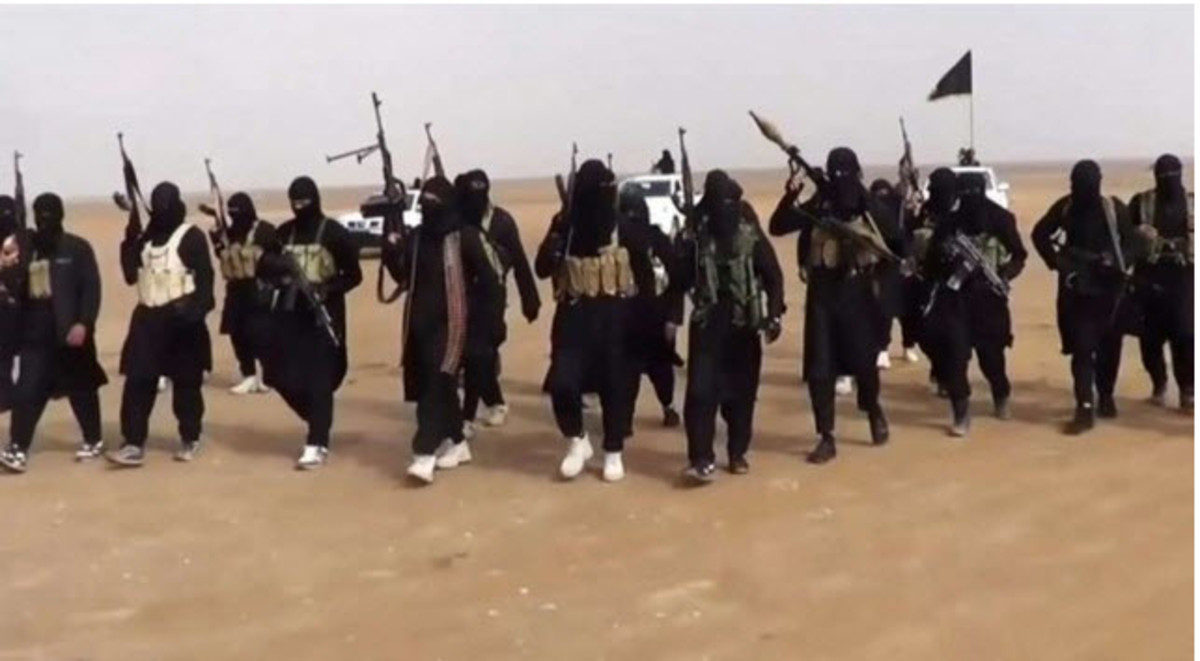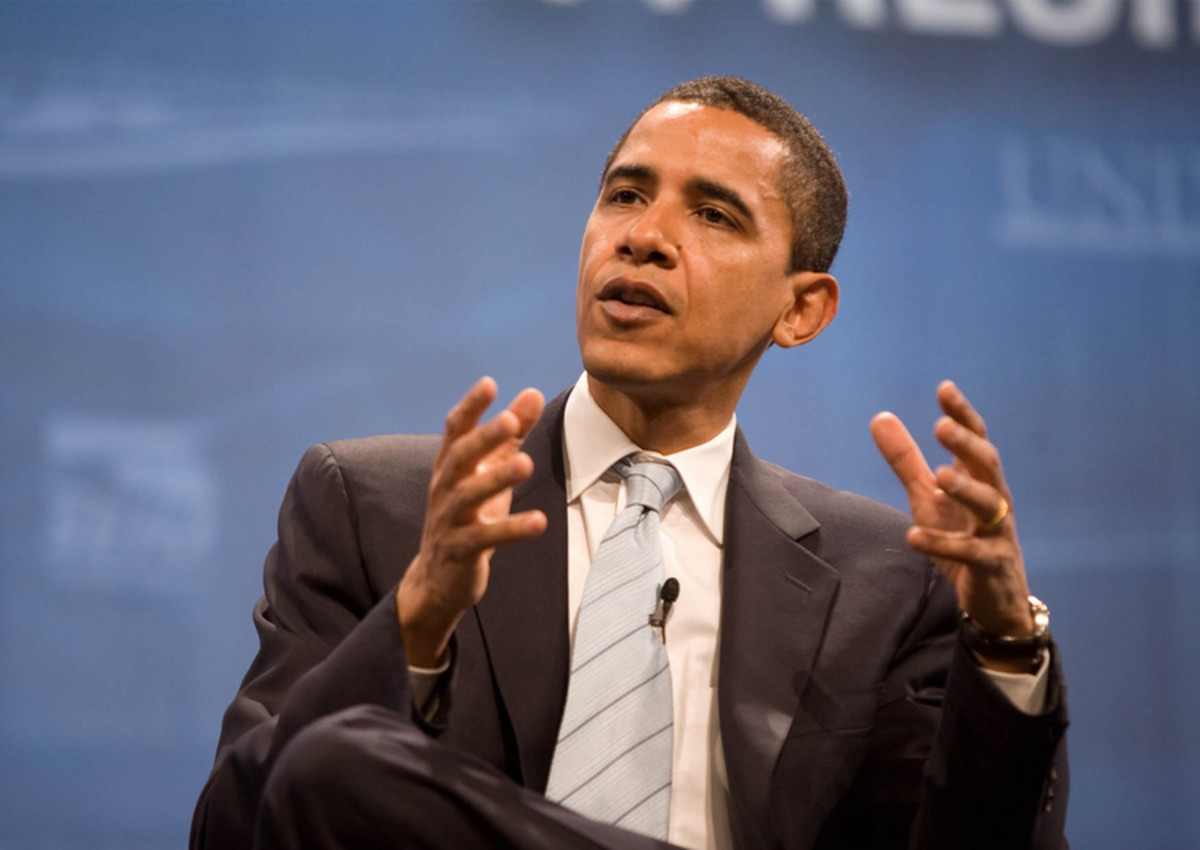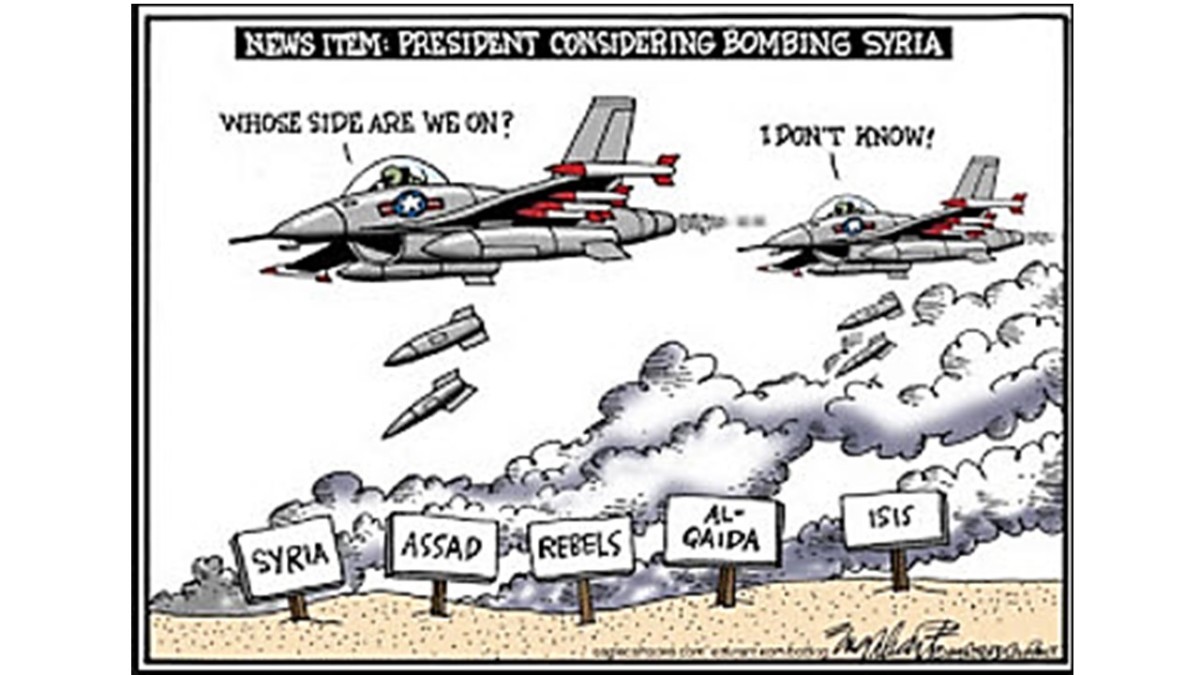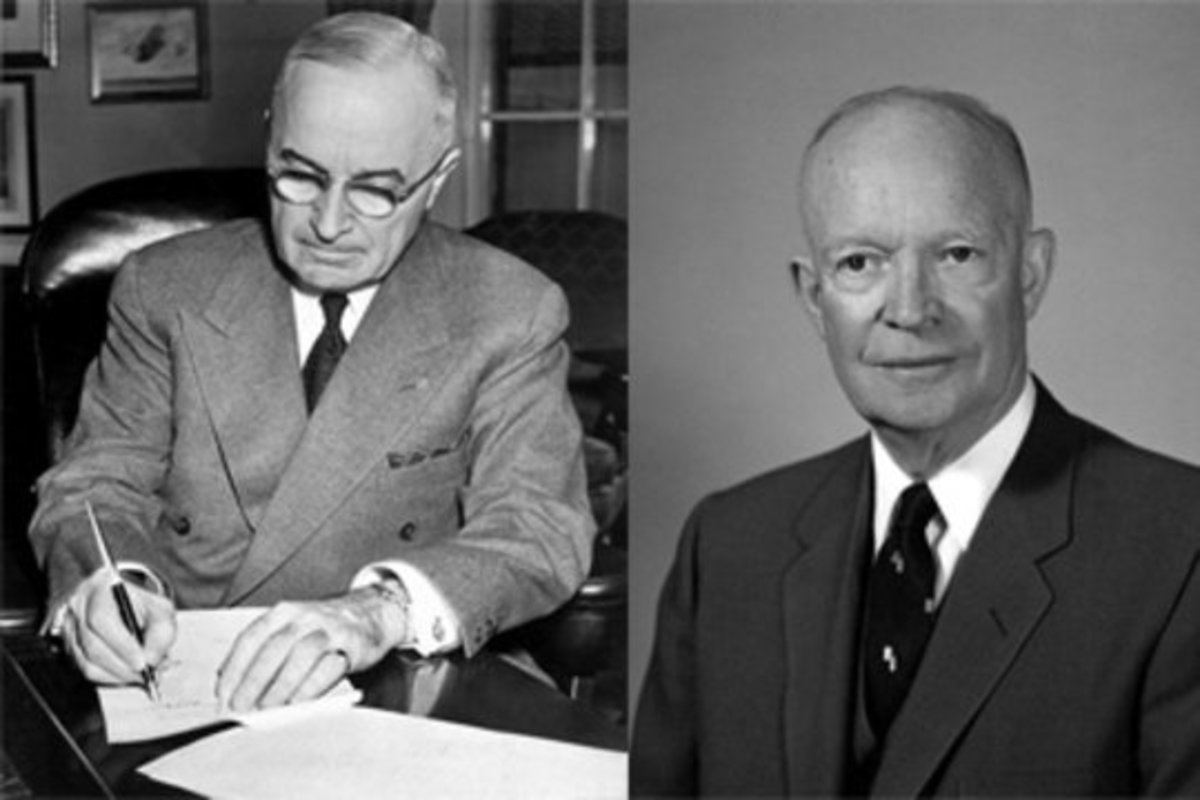Obama Set to Tackle ISIS
Merciless

Policy on Response
The planned intervention by President Obama on ISIS, is leaving observers with more questions than answers. The plan broadly outlines a way of ending the war that has gone on for a decade in Iraq, while still spurring national development at home. However, emerging world issues of seemingly insurmountable proportions keep holding him back. Now, the worst irony is that, the pressures are pulling him back to vortex of the Iraq warzone where he doesn't wish to return, after he spent most of his first term leaving it.
“We will not get dragged into another ground war in Iraq,” he affirmed recently. This time others; mainly Iraqi soldiers will carry out the ground war, helped by American advisers who will plan the battle and American pilots who will bomb the enemy from the air. Whether the ground war will happen or not is still unclear. But believing the President's speech is all that is available to Americans right now. The president makes it clear that there will be American boots on the ground, a position that has been publicly debated by his security chiefs.
Most Americans couldn't help feeling some dread as the speech progressed. It was quite obvious that the President himself must have been apprehensive when he wrote it. The apprehensive ones are right too, considering that the last time America went to war in Iraq, it was a long drawn out affair with serious losses in terms of lives and costs. There is unending concern about war, especially one in which Iraq is mentioned.
Degrade and Destroy
The policy that he outlined which involves the strategy to “degrade and ultimately destroy” the terrorists known as ISIS is quite reasonable, and is as likely to succeed as any that might be conceived. However, where he exhibited confidence and determination, there was a sinking foreboding created by the speech as he roughly outlined his war strategy. The foreboding resulted from the looming memories of the past. ISIS [Islamic State in Iraq and Syria] stands for the envisaged mega vision of some war mongering individual known as Abu al Bagdadi. His preferred method of summoning Uncle Sam to war is the gruesome decapitation of Americans unlucky enough to be captured by his movement.
The policy consists of two major new elements: First, the air strikes will target more than just the areas where ISIS actively targets U.S. personnel. Instead, they will target all ISIS held areas anywhere in Iraq. The strikes will be coordinated with ground assaults conducted by Iraqi troupes, militias, or Kurdish peshmerga.
Second, the strikes will also aim at taking out ISIS Jihadists in Iraq and across the border in Syria. One senior government official stressed that there is more to this particular policy than the open-ended speech seemed to suggest. Obama, he said, is well aware that wars are not won using air strikes alone. They have to be carried out with the support of coordinated ground assaults. At the moment though, there are no ground troupes in Syria to carry decisive assaults which will drive back ISIS.
So, at the beginning at least, U.S. air strikes in Syria will be concentrated along the Iraqi border, to stop the notorious ISIS Jihadists from their bad habit of moving back and forth between the two countries and seeking a safe haven; in a similar manner to the way drones were used in northwest Pakistan to deny safe haven to the Taliban in Afghanistan.
Eventually, these air strikes will spread across Syria. Obama’s strategy also included what he clearly outlined in his speech which is to train and support with equipment the Free Syrian Army [FSA], who are relatively moderate militiamen currently caught between the twin assault of the ISIS and Syrian President Bashar al-Assad. The militia will be trained by elite forces in a base inside Saudi Arabia. Once they are trained and equipped, the FSA will go back to Syria and take back their territory from ISIS with the support of U.S. air strikes. The air strikes remain the only suggested participation of the US in the war.
Dalliance with Iran and al-Assad
Obama’s plan also recommends a wider coalition of European, Arab, and Muslim countries in the fight. ISIS is an extremist Sunni organization, so it’s critical to get mainly Sunni nations involved, to dispel the likely notion that this is an American onslaught or a sponsored sectarian war of Sunnis versus Shiites. For this reason, Obama is opposed to enlist the support of Iran or Assad’s Syria, both Shiite regimes, into the coalition. Both countries hate ISIS deeply, but the Saudis and other Sunni leaders might easily shy away from the fight if it emerged that participation would mean they’re supporting Iran. Moreover, Iran is the oldest nemesis of the United States in the gulf region, and the fact that ISIS is now bringing the two together is simply hilarious. Furthermore, before ISIS happened on the scene, the unspoken American policy was to see the last of the al-Assad presidency in Syria. The arrangements discreetly made with Iran or Syria away from the limelight is another matter altogether. One way or the other, Iran and Syria will take part in the war, since it is their war. They will ignominiously be fighting on the same side as Uncle Sam.
Obama, who is not a big fan of hype, was categorical in his speech that the ISIS jihadists don’t pose as big a threat as Al-Qaida did 13 years ago, on the eve of the World Trade Center attacks. Nevertheless, they are on the rampage, grabbing fortunes, gathering arms, led by competent commanders; many of who are carryovers from the defunct Saddam Hussein army; playing on anti-Shiite and anti-Western sentiments exhibited by Sunni radicals. If they succeed in overrunning Iraq and Syria, then there is every possibility that Jordan and Saudi Arabia might be next. They are fortifying their ranks with radical European jihadists, who have passports that allow them to travel across the continent and into the United States. Clearly, ISIS does pose a threat. This cannot and should not be principally America’s fight; but then America is the only country with the capability to coordinate a joint coalition assault, offer intelligence, logistics, and reliable air strikes that are necessary to secure victory. If push comes to shove, the security chiefs are not ruling out an American infantry joining the ground war as well, though the president was clear that this would not happen.
So, Obama has a just cause and his plan sounds reasonable, even spot on. Nevertheless, there is no end to the issues that could go wrong. Pundits all agree that any number of things could go awry. The region is highly unpredictable as it is littered with militia vying for supremacy in places like Iraq. ISIS is just one of them. Some point out that even the moderate FSA are another ragtag band gunning for supremacy. There could be others just waiting for the US to arm them so that they can launch their own assault for power. Such a scenario cannot completely be ruled out against the background of the chaos currently obtaining in Libya.
Other Alliances
Obama was however realistic enough to admit that the war would amount to nothing without the support of Saudi Arabia, Turkey, and Europeans. What is unclear is role and mission for each of them. Such agreements are yet to be thrashed out. The broad plan has every chance of succeeding in Iraq, since Haider al-Abadi's government is broad-based embracing Sunnis and Shiites for the moment. However, this support could come a cropper with the accidental bombing of a single mosque or a marketplace. A single event like that could lead to fallout with the other countries in the region.
As for Syria, things are not so clear-cut. If the Free Syrian Army doesn't put its act together, will Obama give up his efforts in the country and focus his energies on Iraq; or simply be tempted to push on with the fight alone from the air? Obama is allergic to a protracted war, but he has readily admitted this is not a war that will be won overnight; his advisers estimated it at three years or so. The next US President will take the fight further if it goes that far.
Only time will tell whether the plan succeeds or not. What is pretty clear from the President's speech is that ISIS will not be left completely unchallenged. If left to their own devices, ISIS will most likely continue to provoke the United States and the large number of enemies it is currently making in the Persian region. That is an eventuality that no American President in his right senses can just let happen. This is simply a war that just has to happen now. What is clear is that the plan is on and the US is getting ready for it. At the moment speculation on whether it all goes wrong or the efforts end up in victory still remains very rife.








